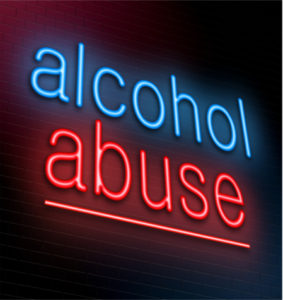Often it is difficult to know in the early stage if an individual is addicted to substances like drugs or alcohol.
But as the addiction progresses there are signs which indicate that a person is addicted to substances. These signs may vary based on the individual’s personality and the specific situation, but some signs generally apply to all addicts.
Understanding the signs of addiction is important. It will help identify addicts quickly, which can speed up the search for help to bring about recovery in such individuals. Therefore, this article will highlight some signs which should tell you that a person is addicted to drugs or alcohol.
These signs include;
- Weight Changes
One major sign of substance addiction is sudden weight loss. The constant intake of drugs or alcohol excessively affects the eating habit of an individual. He/she either begins to eat excessively, always longing for food, or he/she begins to skip meals for long periods.
This leads to abrupt weight gain or loss, altering their physical appearance. The chemicals and properties in the substances cause this change in eating habits. Although weight changes occur without addiction, any abrupt changes could be due to substance addiction.

- Loss of Interest
The individual begins to lose interest in a lot of activities. Work, family, friends, school, things that previously excited such person no longer matter to them. This is because all their energy is channeled towards the consumption of such substances.
- Uneasiness or Regular Absence
In the case of a working-class person, he/she begins to take a frequent absence from work for unknown reasons. Or he/she begins to be absent from work without informing anyone. For students, they begin to skip classes frequently has the chemicals from the drugs have altered their emotions and senses.
- Sleep Habit Alteration
An individual can begin to sleep excessively or go long hours without due to addiction. The chemicals affect their hormones causes extreme fatigue or hyperactiveness. So, if you notice a change in the sleeping habit of a person it could be due to substance addiction.
- Mood Swings
Frequently, such individual is thrown into different at once. This is because the chemicals from drugs or alcohol have affected their hormones causing a constant, unstable change in emotions. So, an addicted person experiences mood swings.
In summary, there are several signs to identify a person addicted to a substance, of which we have discussed a few. When treated in isolation these signs may not apply, but when considered collectively these signs indicate substance addiction.



 A
A  One of the principle pillars of any drug rehab program is education. The education component is crucial to maintaining a clean, drug abuse free lifestyle by providing the necessary life skills to avoid slipping back into addiction. Once an individual overcomes their addiction in a treatment facility they will have to return to the wider world. When the recovering addict does this, they will require tools to constructively overcome the hurdles they encounter along the way.
One of the principle pillars of any drug rehab program is education. The education component is crucial to maintaining a clean, drug abuse free lifestyle by providing the necessary life skills to avoid slipping back into addiction. Once an individual overcomes their addiction in a treatment facility they will have to return to the wider world. When the recovering addict does this, they will require tools to constructively overcome the hurdles they encounter along the way. Many people can use alcohol with out abusing alcohol.
Many people can use alcohol with out abusing alcohol. 